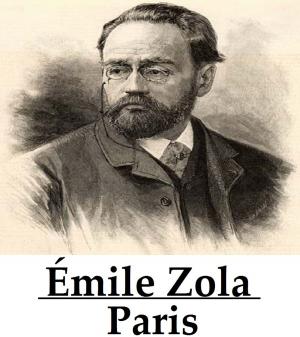| Author: | David Hume | ISBN: | 9788892570016 |
| Publisher: | David Hume | Publication: | March 14, 2016 |
| Imprint: | Language: | English |
| Author: | David Hume |
| ISBN: | 9788892570016 |
| Publisher: | David Hume |
| Publication: | March 14, 2016 |
| Imprint: | |
| Language: | English |
It has been remarked, my HERMIPPUS, that though the ancient philosophers conveyed most of their instruction in the form of dialogue, this method of composition has been little practised in later ages, and has seldom succeeded in the hands of those who have attempted it. Accurate and regular argument, indeed, such as is now expected of philosophical inquirers, naturally throws a man into the methodical and didactic manner; where he can immediately, without preparation, explain the point at which he aims; and thence proceed, without interruption, to deduce the proofs on which it is established. To deliver a SYSTEM in conversation, scarcely appears natural; and while the dialogue-writer desires, by departing from the direct style of composition, to give a freer air to his performance, and avoid the appearance of Author and Reader, he is apt to run into a worse inconvenience, and convey the image of Pedagogue and Pupil. Or, if he carries on the dispute in the natural spirit of good company, by throwing in a variety of topics, and preserving a proper balance among the speakers, he often loses so much time in preparations and transitions, that the reader will scarcely think himself compensated, by all the graces of dialogue, for the order, brevity, and precision, which are sacrificed to them.
There are some subjects, however, to which dialogue-writing is peculiarly adapted, and where it is still preferable to the direct and simple method of composition.
It has been remarked, my HERMIPPUS, that though the ancient philosophers conveyed most of their instruction in the form of dialogue, this method of composition has been little practised in later ages, and has seldom succeeded in the hands of those who have attempted it. Accurate and regular argument, indeed, such as is now expected of philosophical inquirers, naturally throws a man into the methodical and didactic manner; where he can immediately, without preparation, explain the point at which he aims; and thence proceed, without interruption, to deduce the proofs on which it is established. To deliver a SYSTEM in conversation, scarcely appears natural; and while the dialogue-writer desires, by departing from the direct style of composition, to give a freer air to his performance, and avoid the appearance of Author and Reader, he is apt to run into a worse inconvenience, and convey the image of Pedagogue and Pupil. Or, if he carries on the dispute in the natural spirit of good company, by throwing in a variety of topics, and preserving a proper balance among the speakers, he often loses so much time in preparations and transitions, that the reader will scarcely think himself compensated, by all the graces of dialogue, for the order, brevity, and precision, which are sacrificed to them.
There are some subjects, however, to which dialogue-writing is peculiarly adapted, and where it is still preferable to the direct and simple method of composition.















